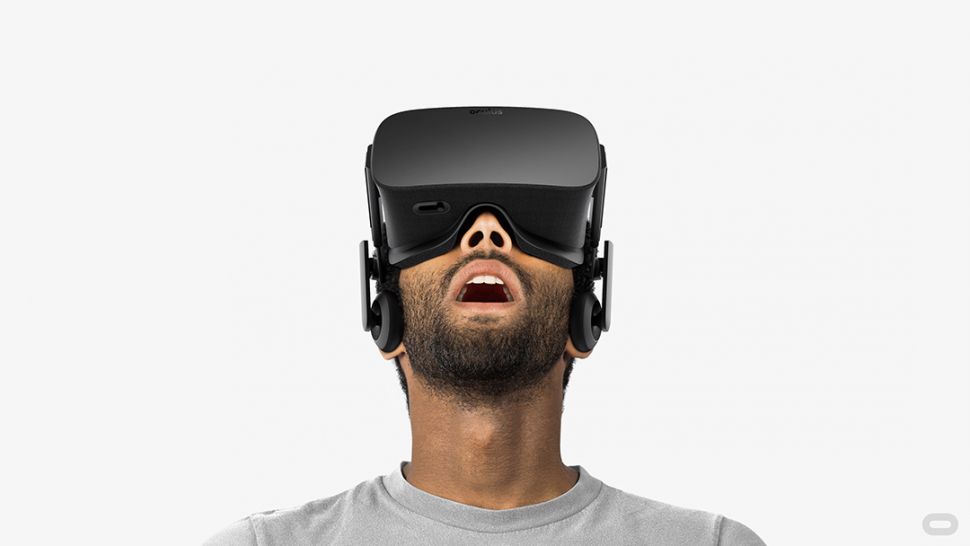Does anyone care about VR anymore? It still doesn't have that "killer" app
It's a catch-22 situation, and I'm still not convinced about it

Sign up for breaking news, reviews, opinion, top tech deals, and more.
You are now subscribed
Your newsletter sign-up was successful
Why are we still chasing the VR dream? Honestly, now. I don't get it. I've been there since the very beginning of the modern virtual hype train, since the initial announcement and launch of the Oculus Rift and HTC's Vive headset. I watched as Meta took over. I've been there, and scoffed at the countless millions invested in the field - to what end, I've still yet to understand. I've stood wincing as twin screens glare into my retinas, as my head spins and I inevitably end up motion-sick after mere minutes using awkwardly heavy lumps of lens strapped to my face. And every single time I try a new unit, I'm impressed with the improvements for 30 minutes. I then get bored and set it down, never to use the thing again.
VR is such a bizarre field that makes so little sense to me. It almost feels like a nonsensical passion project that's become so big it can't be allowed to fail. The thing is, right now, with the right hardware, you can have a pretty solid VR experience. Grab something like a Meta Quest 3, a decent PC, and virtual reality gaming is a fairly fun time, as long as you can afford it. That is, until you come crashing back to reality as you run out of titles, or the games in question just don't hold up to their traditional console and PC counterparts.
The problem lies with the uptake. It's a real catch-22 situation. In short, VR has never had that killer app, that must-play game that's really cemented it in place, unlike consoles or the conventional gaming PC has had. There's no one unique 10/10 title launched on it that anyone can remember, nor any singular app that changes the way we view VR, no massive IP that's changed the game.
The good ones
There have been some excellent outliers, sure, Half-Life: Alyx, for example, but that's about it. Maybe Beat Saber and VR Chat at a push, but it's hardly World of Warcraft, or League of Legends, or Halo, is it? There's just no IP that's blown the barn doors off and had us scuttling over to this new form of entertainment, as we've done with each iterative generation of new consoles.
Again, the issue is uptake. As game development becomes increasingly complex, requiring larger investments, bigger publishing houses and developers have to strategically decide what platform they want to create their titles for to get the greatest ROI.
Inevitably, that's going to be PC or consoles - platforms that now basically share the same fundamental architectures, allowing for cross-propagation of titles. And yes, that market is just monstrous by comparison. To give you a sense of scale, some estimates put the total VR user base in 2023 at around 171 million users (although the accuracy doesn't seem that great from the sources I've found).
By contrast, according to Statista, in 2023 there were 1.827 billion PC gamers, with (admittedly again very rough estimates) suggesting that total console gamers sat at an even larger 2.29 billion. The global gaming population (again thanks to Statista) sat at around 3.32 billion active gamers worldwide, with some overlap between platforms. In other words, VR accounts for a meager 5% of the total audience. It doesn't help that VR headsets are still a pricey investment for gamers, with even the budget-friendly Meta Quest 3s coming in at $299.99 / £289.99 / AU$499.99 for the cheapest configuration.
Sign up for breaking news, reviews, opinion, top tech deals, and more.
If you're going to invest heavily in developing a game and are looking to make your money back and then some, it doesn't make sense to create a title for VR, which is why so few good titles make it onto the platform. It's a particular problem given that the various virtual reality systems available have wildly different interaction systems, user interfaces, and graphical limitations to boot. It's not like you can easily transition a title over from console to headset. I get the counterargument to that too, "But Zak, indie developers will do it, surely?" Outside of passion projects? They've still gotta put bread on the table too, and again, it's just far more sensible to build your title for PC, grow big there, then pivot to console instead.
Mouse and keyboard? Controller? No, try this weird glove instead.
And then there's this insane obsession with how you interface with it that developers seem to have. This apparent need for motion tracking, special hand grips, gloves, and more to fully immerse yourself in these virtual worlds. Your eyes are glued to two screens, so of course you should feel submerged in your new digital world with your body as well. That's great, until you crash into a wall as you stumble across the room haphazardly, or awkwardly fumble with the controls while screaming as your ship tumbles out of the atmosphere in No Man's Sky.
Not only did we reinvent the wheel by introducing VR, but we also thought it was a smart move to introduce gimmicky controllers and interaction systems into the mix as well - something that, to this day, no one has fully settled on a design for.
Do you know what would be the best system for VR gaming? A controller. Sat down on a chair, safe from bashing your shin against a coffee table, using the headset as a more advanced screen, with IR tracking to monitor head movement, and that's it. What would that give you? A better, immersive experience in every title you could imagine, with all of the brilliance of control systems we're already used to, that are already well established, with a mass market that's bloody huge. It'd be like noise-canceling headphones for your eyes.
Instead, what we've been given is a cacophony of bad ideas merged into a device that has no one app or program to really draw you to it, because it has to deal with these asinine interfaces and systems that are underdeveloped because there simply aren't enough people on the platform to begin with. The hardware might improve, but the systems they run just won't.
There's an old design principle that I wholeheartedly believe in. One that has, in my opinion, been massively overlooked with VR, and that's KISS: Keep It Simple, Stupid. And it seems, apparently, that virtual reality missed the boat on that one.
You might also like...

Zak is one of TechRadar's multi-faceted freelance tech journalists. He's written for an absolute plethora of tech publications over the years and has worked for Techradar on and off since 2015. Most famously, Zak led Maximum PC as its Editor-in-Chief from 2020 through to the end of 2021, having worked his way up from Staff Writer. Zak currently writes for Maximum PC, TechRadar, PCGamesN, and Trusted Reviews. He also had a stint working as Corsair's Public Relations Specialist in the UK, which has given him a particularly good insight into the inner workings of larger companies in the industry. He left in 2023, coming back to journalism once more. When he's not building PCs, reviewing hardware, or gaming, you can often find Zak working at his local coffee shop as First Barista, or out in the Wye Valley shooting American Flat Bows.
You must confirm your public display name before commenting
Please logout and then login again, you will then be prompted to enter your display name.